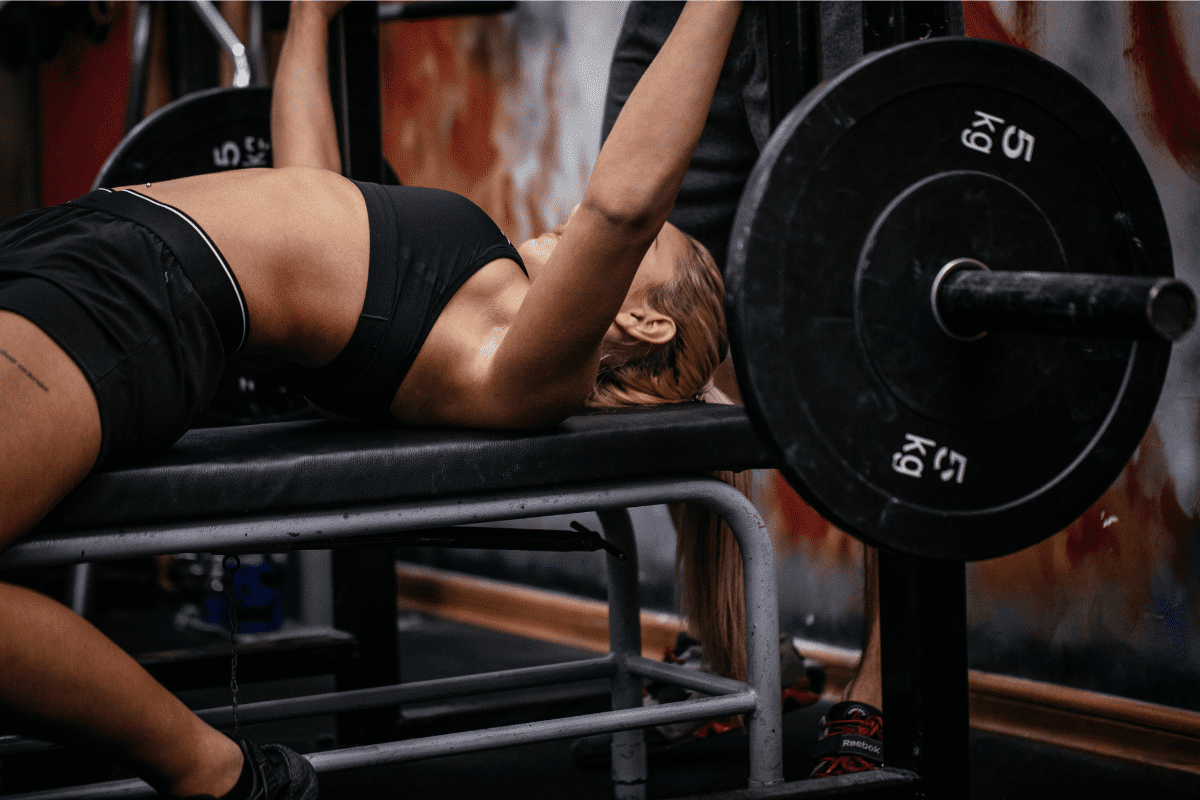Dumbbell Bench Press vs Barbell Bench Press (Which is Best?)
Bench Press is easily one of the most popular exercises in any gym. It’s so popular that there are two different variations that are both at the top of many lifters’ favorite exercises – Dumbbell Bench Press and Barbell Bench Press.
Both work the chest, shoulders and triceps. But, is one better than the other?
Is one better at building strength? Are the muscles worked the same? Is a Dumbbell Bench Press or Barbell Bench Press easier for beginners?
In this guide, I’m going to explain exactly what each exercise is, how to do them, and then compare the two against each other to give you an idea of which exercise you should be doing and when.
First, the Dumbbell Bench Press.
Dumbbell Bench Press
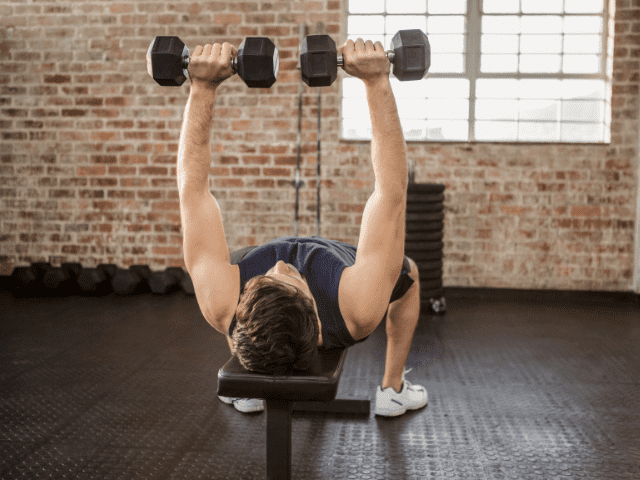
Equipment Needed
- Dumbbells
- Bench
Step-by-Step Instruction
- Grab your dumbbells, sit on the edge of the bench, and sit the dumbbells on your thighs vertically.
- Take a deep breath, lie flat on your back on the bench, and get your dumbbells in position ready to press.
- Keep your feet flat on the floor.
- Keep your butt on the bench.
- Pull your shoulder blades together and keep the back of your head on the bench. You will slightly arch your back. Keep your core tight and keep the shoulder blades pulled back tight.
- The dumbbells should be slightly angled (representative of the path you are descending with your elbows).
- Press the dumbbells up.
- Control the dumbbells down during the eccentric movement and draw the dumbbells in, keeping the elbows at about a 45-degree angle away from the torso.
- The dumbbells will make contact with your torso right at the nipple line on the chest.
- Once contact is made, drive the dumbbells back up.
- When your set is done, do not freely drop the dumbbells without checking your surroundings. You could drop the dumbbell and it might hit a person nearby. Or your could drop your dumbbell and crush your fingers on a dumbbell that was left next to your bench.
- The best way to finish a set is to bring the dumbbells back to your thighs and stand up with them. Or have a lifting partner take them from you.
Coaching Points
Dumbbell Bench Press is a very shoulder-friendly pressing movement. Because the implement is a dumbbell, the range of motion is increased, the shear force on the shoulder is decreased, and the shoulder stabilizing muscles are engaged.
I would highly recommend this movement to any athlete. It provides all the benefits that a pressing movement can offer with minimal risk.
Remember to finish your sets with awareness so that you and your training partner/fellow gym members stay safe and injury-free.
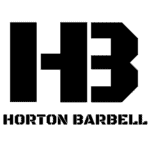
Tired of coming up with your own workouts? But don’t want to pay an arm and a leg?
I post workouts 5 days a week right here. (Did I mention they’re free?)
Barbell Bench Press
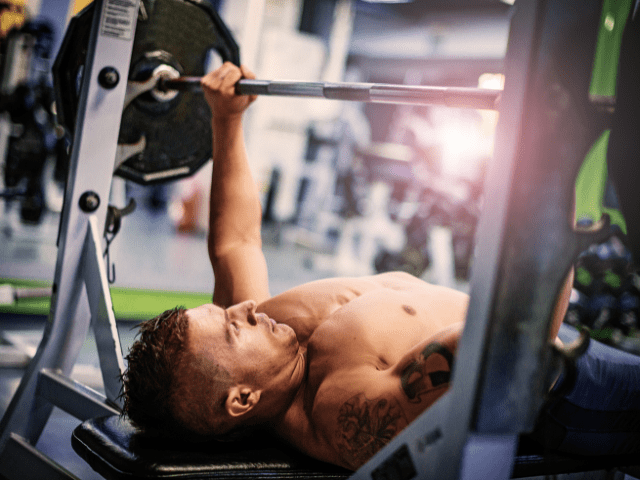
Equipment Needed
- Multi-purpose lifting rack
- Bench
- Barbell
- Bumper or Iron plates
Step-by-Step Instructions
- Set the height of the barbell so that when you unrack the barbell, you are only doing a very short upward concentric movement.
- Lie flat on your back on the bench.
- Keep your feet flat on the floor. (Some do find it comfortable to pull the feet back toward their butt as they arch).
- Keep your butt on the bench.
- Pull your shoulder blades together and keep the back of your head on the bench. You will slightly arch your back. Keep your core tight and keep the shoulder blades pulled back tight.
- Take a thumbs-width grip from the knurling and completely close your grip. Keep your knuckles pointing toward the ceiling and squeeze the barbell.
- Later in this article, I will go over other popular grips and why they are used.
- Unrack the weight and take a deep breath.
- Control the barbell down during the eccentric movement and draw the barbell in, keeping the elbows at about a 45-degree angle away from the torso.
- The barbell will make contact with your torso right at the nipple line on the chest.
- Once contact is made, drive the barbell back up to the starting position.
Coaching Points
Do not over arch the back or let your butt come off the bench. Most professionals will not accept repetitions if the butt comes off the bench but also you will likely injure yourself with poor form.
Do not let the back of your head come off the bench because you are pulling down on your neck to watch the bar hit your chest. You will get used to the movement and your peripheral vision will allow you to know when the bar makes contact.
Do not let the elbows flare out away from the midline. The shoulders are incredibly vulnerable in these positions and the sheer force placed on the shoulders will lead to injury if the technique is not made a priority.
Dumbbell Bench Press vs Barbell Bench Press – Which is Better?
Now, let’s directly compare Dumbbell Bench vs Barbell Bench in a few key categories.
Which Is Better For Building Strength?
I’m going to say Barbell Bench, but because of logistics only, not because of the two movements itself. Here’s what I mean:
Once you start to develop a good amount of strength, you’re most likely going to be limited by the availability of heavier and heavier dumbbells. Even at commercial gyms, you’re probably lucky if you have access to any dumbbells over a 100 pounds.
On the other hand, even if you’re lifting at home, it’s not hard to have as much weight as you want for Barbell Bench Press.
For this reason, I’m going to say Barbell Bench Press is better at building strength. HOWEVER, if you have access to heavy enough dumbbells for you to be able to challenge yourself with sets of 5 reps, then dumbbells are going to be just as effective as a bar.
Which Is Better For Hypertrophy?
This one is going to be a bit of a draw as well. There are some studies that show that dumbbells elicit more muscle activation than a barbell. On the other hand, there are studies that show that more overall weight can be used with a barbell than dumbbells.
Then, there is the factor of range of motion. Dumbbells are going to allow for a greater range of motion, which is beneficial for muscle hypertrophy.
The bottom line is, that one movement is not a clear favorite over the other when it comes to muscle growth. Unless, as I mentioned with developing, you’re limited in the size of dumbbells you have access to. Then, the advantage is going to be with Barbell Bench Press.
Which Is Better on the Shoulders?
I would give the nod to Dumbbell Bench Press as being better on your shoulders. Using dumbbells allows the lifter more variance on the movement path than a barbell. This gives the lifter more freedom to find a movement pattern that will be less stressful on the shoulders than a barbell.
The stabilizer muscles of the shoulder are also going to be much more active when using dumbbells. This provides benefits to the overall health of the shoulder, especially for athletes.
Which Is Better For Beginners?
I would give the nod to Dumbbell Bench Press as being better for beginners too.
One of the reasons is that the barbell has an entry point of 45 pounds. For some beginners, that may be a little more than they’re ready for when they first get started. Dumbbells make it much easier to start with lighter weights.
The other reason is that dumbbells elicit more of a neuromuscular demand than a barbell. This will help beginners learn how to stabilize movements and control weight through full ranges of motion quickly.
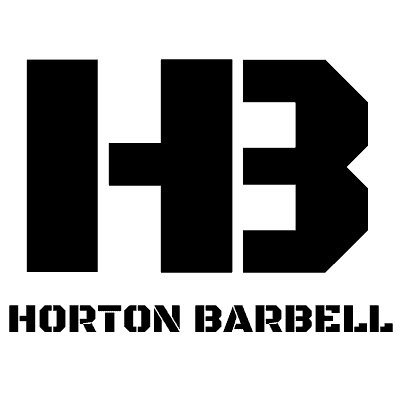
Get Shredded… For Free
Get a free workout Monday through Friday, posted right here on Horton Barbell. These workouts are designed to help you get strong, in shape and look great at the beach!
Final Thoughts
I’ve just spent an entire article comparing Dumbbell Bench Press vs Barbell Bench Press. However, the truth is, there is no reason you shouldn’t have both exercises in your strength training program.
Both are excellent exercises for building strength and hypertrophy. And, both exercises actually complement each other well and incorporating both into your training can also add much-needed variety.
So, my suggestion would be instead of trying to decide between the two exercises, figure out how you can utilize both Dumbbell Bench Press and Barbell Bench Press into your training plan.
More Links and Info
Check out how Bench Press compares to other popular pressing movements:

